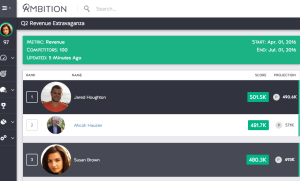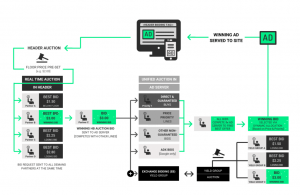— July 23, 2018

Although popular culture often portrays millennials as recent college graduates, the truth of the matter is that most of them are already well into their late twenties and thirties. The question of how to prepare them for leadership positions is not a hypothetical issue focused on the future—it’s a vital challenge facing organizations right now.
Millennials already make up more than a third of the labor force and will make up about half of all leadership positions within a decade. Organizations that take steps now to identify and prepare high potential candidates for leadership positions stand to benefit enormously. Here are a few strategies companies can take right now to better appeal to aspiring millennial leaders.
1: Involve Them Early
Above all else, it’s important to involve millennials in the leadership development process as soon as possible. More than any previous generation, millennials are far more likely to leave their job if they don’t believe it meets their personal needs and goals. The Bureau of Labor Statistics indicates that the average worker stays at a job for 4.4 years, but 91% of millennials don’t expect to stay in one place for more than three years. Considering that millennials consistently rank “opportunities to learn and grow” as one of the top attributes they find attractive in a job, taking deliberate steps to show them how they can develop within an organization is a key factor in retaining them.
Millennials value transparency and communication. Providing them with a very clear view of their organization’s structure and decision-making process early in their tenure allows them to imagine what roles they might fill in the future. They tend to value flat management structures that don’t simply focus on climbing to different positions in a hierarchy. Providing them with a speedy path to leadership authority is important considering that a majority of millennials have expressed a desire to lead in workplace surveys.
Regardless of whether or not they’re ready to assume a leadership role in an organization, they must be made aware that their employer has a plan to move them into those positions as soon as they’re ready.
2: Give Them Control
Fortunately, their eagerness to improve their skills and take on new responsibilities makes millennials more likely to take a proactive role in training. Many of them are accustomed to differentiated educational systems that make accommodations for different types of learning. They tend to push back against what they perceive as policy for the sake of policy and do not respond well to strict, conformist approaches to learning and management.
Giving millennials the autonomy to set their own goals and proceed at their own pace encourages their creativity and allows them to achieve the work-life balance they value. Making development tools available online and offsite allows them to take ownership of how their education is structured. While they should still be expected to justify their decisions and choices while being held to high standards of performance, millennials are less likely to feel stifled or controlled in a workplace where they can approach tasks and learning on their own terms.
3: Provide More Diverse & Engaging Training
Millennials are accustomed to interactive technologies and respond well to audiovisual learning tools that incorporate game-like mechanics. Growing up with the internet has conditioned millennials to consume information in short bursts that actively engage their attention. They can quickly tire of traditional, classroom-oriented training, especially if they don’t see clear connections between the content and their day-to-day responsibilities.
Training materials for millennials need to be short and to the point. They’re more likely to benefit from completing a series of 15-30 minute webinar videos on a topic than from a day-long seminar. E-learning programs that allow them to learn at their own pace combined with other interactive formats like virtual instructor-led courses, scenario-based games, and face-to-face simulations provide enough diversity to keep them from tiring of any one approach to learning.
Many millennials are also driven by competition, especially through social media and online communities. Incorporating game elements into training, such as allowing participants to earn special tokens or post score results on a community leaderboard, can keep millennials motivated and engaged in their continuous development.
4: Give Them Feedback
While millennials are often criticized for seeking praise, they’re usually not just looking for empty compliments. They genuinely want detailed feedback on their work in order to learn what they’re doing well and identify where they can improve.
Frequent feedback helps millennials to track their performance over time and makes it easier for them to develop productive skills and habits. This feedback shouldn’t just be a part of regimented performance reviews. While formal reviews are important tools, millennials can also benefit from informal feedback. Simply calling attention to something they do well or showing them what they could have done better can be tremendously important to their development and make them feel supported and valued..
Implementing 360-degree feedback assessments can be especially helpful to millennials as it not only gives them a comprehensive view of their own performance but also an opportunity to evaluate their colleagues. In some instances, this can help prepare them for leadership roles if they hope to eventually be responsible for directing a team. It also gives them an opportunity to think about their place in the organization and what responsibilities they may want to take on in the future.
5: Encourage Mentorships
Leadership and career development is more than just developing technical skills and expertise. Millennials want to know more about the human aspects of their careers, such as how to deal with adversity, resolve conflicts, and balance work with the demands of their personal lives. Mentorship programs are a good way of helping millennials learn to make better career decisions as well as familiarize them with the policies, procedures, and culture of the organization.
An effective mentor is especially valuable for helping millennials work on the soft skills they often have not had the opportunity to develop yet. They also provide the kind of first-hand experience millennials value, giving them someone to turn to for advice and guidance. Working with a mentor also gives millennials the opportunity to share their own thoughts and ideas with someone in a leadership position.
As millennials continue to make up a larger percentage of the workforce and begin moving into more leadership-oriented roles, it’s more important than ever for organizations to take steps that can prepare them for these challenges. Rather than forcing them to fit into pre-existing patterns and practices, companies stand a better chance of retaining millennial employees by catering to their unique needs. Providing millennials with learning opportunities they’re comfortable with and encouraging their continued development will help to bring out the best in this new generation of leaders.
Business & Finance Articles on Business 2 Community
(91)









